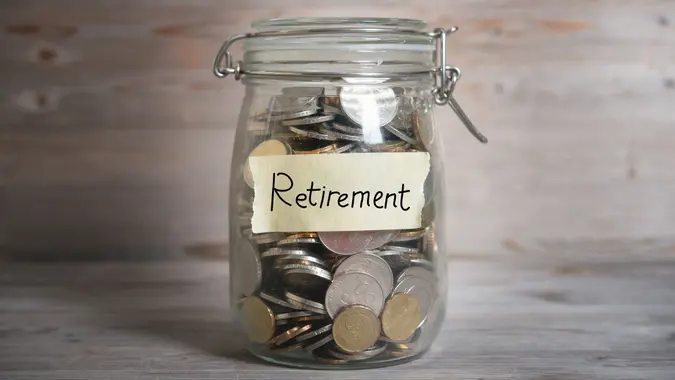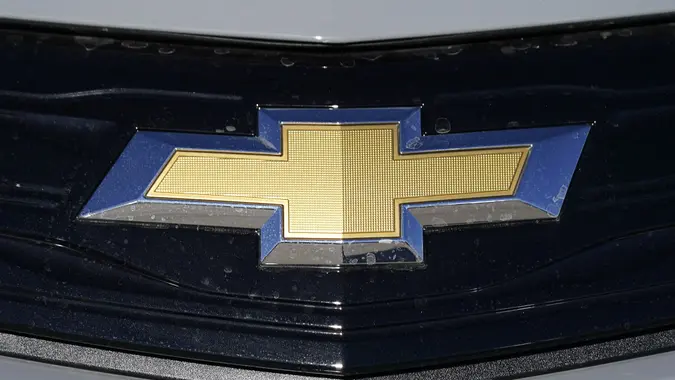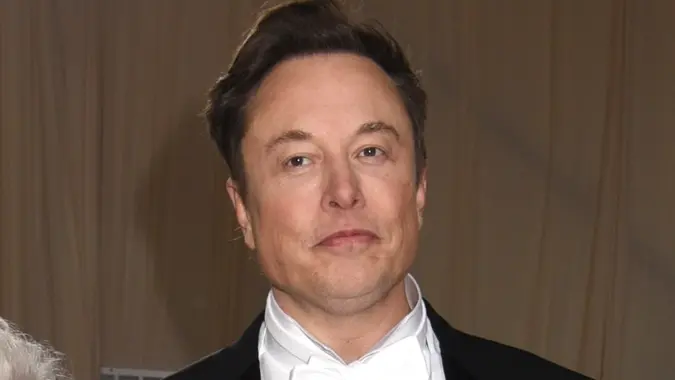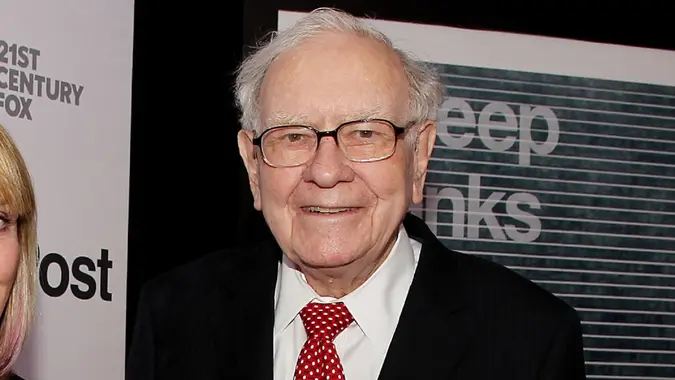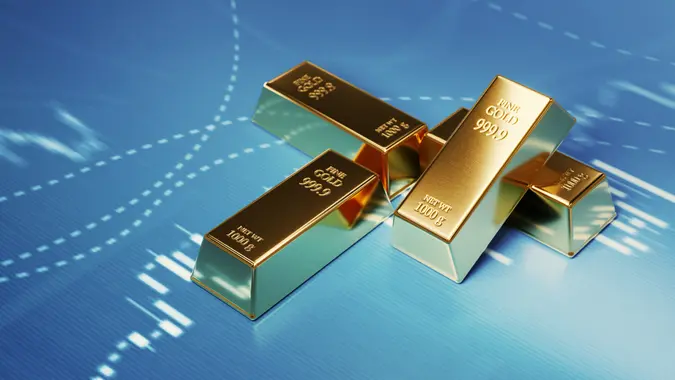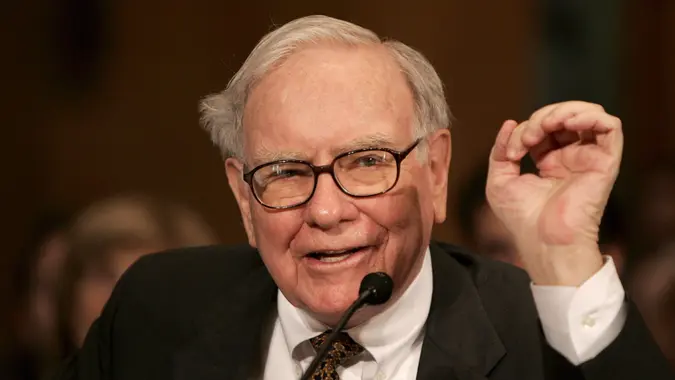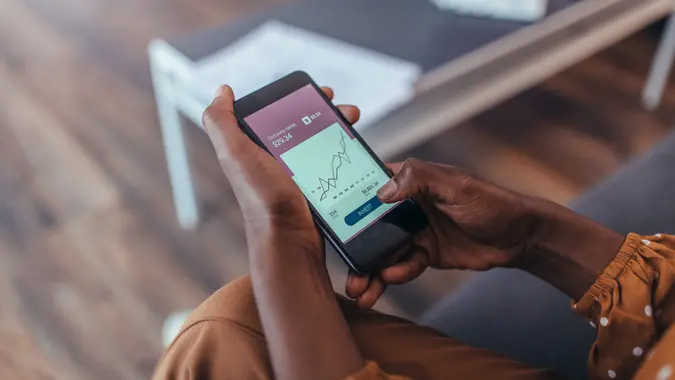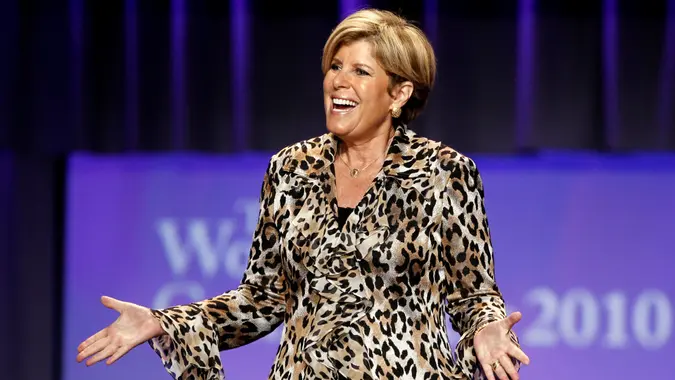Elon Musk’s Original Electric Car Investment and More of the Best Ideas Started With $15K or Less
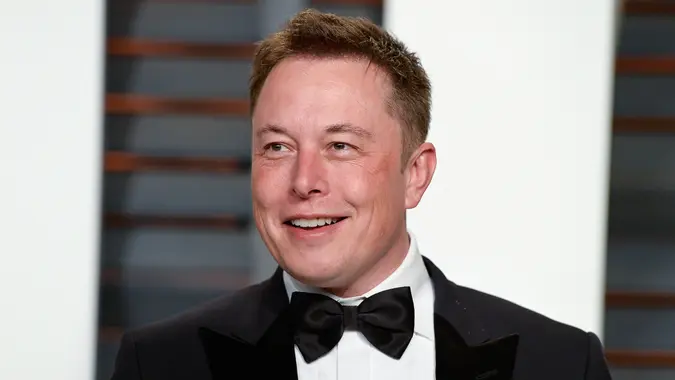
Commitment to Our Readers
GOBankingRates' editorial team is committed to bringing you unbiased reviews and information. We use data-driven methodologies to evaluate financial products and services - our reviews and ratings are not influenced by advertisers. You can read more about our editorial guidelines and our products and services review methodology.

20 Years
Helping You Live Richer

Reviewed
by Experts

Trusted by
Millions of Readers
In 2002, JB Straubel was convinced that lithium-ion batteries were the future of electric vehicles. He just couldn’t get the funding he needed to pursue the idea. Not until he met Elon Musk, who promised Straubel $10,000 to pursue the dream that would eventually grow into Tesla.
Musk became one of the wealthiest men in the world on the back of that deal. But his story isn’t as rare as you might expect. Here are nine other entrepreneurs who turned small investments into vast fortunes.
Apple
Steve Jobs and Steve Wozniak started Apple in 1976 with an initial investment of only $800. They added money raised from selling Jobs’ Volkswagen bus and Wozniak’s scientific calculator.
The results speak for themselves. Apple went on to become the world’s preeminent consumer technology company and now has a market capitalization of over $2.5 trillion. Jobs owned around 11% of the company when it went public in 1980 — an estimated $250 billion-plus by today’s share price.
Subway
There seems to be a Subway on every city block nowadays. But in 1965, the idea of a made-to-order sandwich shop was relatively new. That’s when Fred DeLuca started this iconic brand with an initial investment of just $1,000. The idea caught on quickly, and today the company has over 40,000 locations worldwide.
The DeLuca family has received around $2.6 billion in royalties from the sandwich chain. The company was also recently sold for around $10 billion to a private buyer.
Nike
In 1964, Phil Knight and his former track coach, Bill Bowerman, each invested $500 to start a company they called Blue Ribbon Sports. They soon changed the name to Nike, which has since grown into the premier athletics brand in the world.
Knight and his family still own 20% of the company today. This is estimated to be worth around $51 billion thanks to the stock’s massive appreciation over the years.
Starbucks
Starbucks is the most popular coffee chain in the world, with a market capitalization of around $100 billion. But its founding story is a humble one.
Gordon Bowker, Jerry Baldwin and Zev Siegl each invested just $1,350 when opening the chain’s first store in Seattle in 1971. The trio grew the brand gradually, but by 1980, it was the largest coffee roaster in Washington state.
The friends sold their coffee business to Howard Schultz and other investors for $3.8 million in 1987. They each turned around $1,000 into $1 million from the sale alone and have made many millions more over time by holding Starbucks stock.
Dell Technologies
Michael Dell was a 19-year-old pre-med freshman when he dropped out of school to found Dell Technologies. He put in $1,000 of his own money and got to work on creating efficient, low-cost computers that would be attractive to the average consumer.
The results were almost immediately impressive. The company was worth $6 million by the beginning of 1985 — just two years after its creation. But that was only the beginning. Dell was worth $70 million by the end of that same year and has a market cap of around $90 billion today.
Michael Dell took the money he made from the company and invested it in other businesses, including Four Seasons Maui, Applebees and IHOP. He’s outpaced his company with those investments, amassing a net worth of around $95 billion.
Under Armour
Under Armour founder Kevin Plank started his now-famous company with around $15,000 and some locally purchased fabric. Frustrated by cotton T-shirts that wouldn’t keep him dry while he played football, he set out to make a shirt that was both lighter and drier for athletes who felt the same.
Under Armour hasn’t reached the same heights as some of the other companies on this list. But its market capitalization is still nearly $3 billion today — an excellent return on Plank’s initial $15,000 investment.
Papa John’s
Papa John’s is one of the biggest pizza brands on the planet, with a market cap of over $2 billion. But founder John Schnatter created the now-famous brand with just $1,600.
Schnatter used the funds to buy used restaurant equipment, which he set up in the back of his father’s tavern. He eventually realized he could stand out by not just selling high-quality pizzas, but delivering them to customers’ homes, too. The rest is history, as Schnatter has grown the brand to amass a fortune worth around $400 million today.
Spanx
Sara Blakely was 27 years old in 1998 when she came up with the idea for Spanx. On a whim, the entrepreneur cut the feet off her pantyhose and realized how great she felt and looked while wearing them.
With just $5,000 of her own savings, she turned the idea into a business and began selling the same products to customers who felt the way she did across the country. It didn’t take long for the idea to catch on, and Blakely has become a billionaire as the brand continues its success story.
Hewlett-Packard
Friends Bill Hewlett and Dave Packard were electrical engineering graduates when they came up with the idea for HP in 1935. Each invested $538, which is the equivalent of a little over $11,000 today.
The duo used the cash to rent a garage in Palo Alto, which is today commonly referred to as the birthplace of Silicon Valley. The partners got their break by inventing an oscillator to test sound equipment, which the Walt Disney Company purchased to get movie theaters ready to air Fantasia. Since then, HP has grown into one of the most recognizable technology brands on the planet, with a market cap of around $27.5 billion.
Final Take
Together, these stories show that you don’t have to be Warren Buffet to make a life-changing investment. You just need a good idea, a little capital and the dedication to do whatever it takes to bring your big idea to life.
More From GOBankingRates
 Written by
Written by  Edited by
Edited by 



